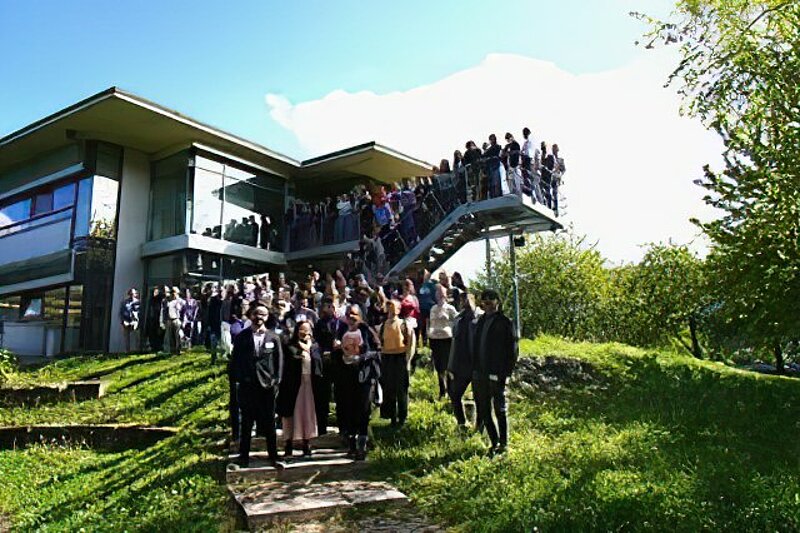Last month, numerous researchers converged in Dresden for a multifaceted workshop Interdisciplinary challenges in non-equilibrium physics: from soft to active and biological matter (IntCha24). The event was held from April 22-26th and organised by the Cluster of Excellence Physics of Life (PoL) and Max-Planck Institute for the Physics of Complex Systems (MPI-PKS). This workshop aimed to bridge the gap between biologists, out-of-equilibrium physicists, and traditional soft matter, by linking theory and experiments. Bringing together numerous experts from backgrounds in physics, chemistry, biology, and mathematics, the workshop was able to provide a space for researchers to discuss similar problems in their work, generate novel solutions, and address complex unresolved questions in physical and biological systems.
Early career researchers, from master’s students to young principal investigators, were especially encouraged to attend. A poster session was held for these scientists to present their data, and network with others in the field. As an event hosted primarily for younger scientists, the atmosphere was relaxed, and fostered a more open environment for researchers to ask questions, engage with a diverse range of topics, and establish fruitful discussions. The hike further reinforced connections between participants and allowed for effective networking and friendships to form. In this melting pot of expertise, participants could discover new research avenues in biophysics, and beyond. “As a student at the beginning of their research career, the workshop was an invaluable opportunity to meet scientists from different fields, and learn about the research landscape” says Yasmin Abdelghaffar, a MSc student completing her thesis with the Jahnel group at PoL. “With perspectives from so many countries, there was a lot of opportunities to learn something new” she says.
One of the organizers, Melissa Rinaldin, was highly satisfied with the event's success: "We chose Dresden because of its incredible scientific community, featuring in particular a high density of institutions and researchers focusing their work on the interface between physics and biology". Not only this, but numerous young researchers greatly benefited from the conference. "The astonishing support we received both from MPI-PKS and PoL Dresden allowed us to fully refund not only speakers' and organizers' travel expenses, but also to support travel for younger participants and/or participants coming from very distant countries. This all resulted in a lively conference... that featured a great atmosphere in addition to a great scientific program. It made the difference" she said.
We are looking forward to more international workshops organised by PoL in the future!
